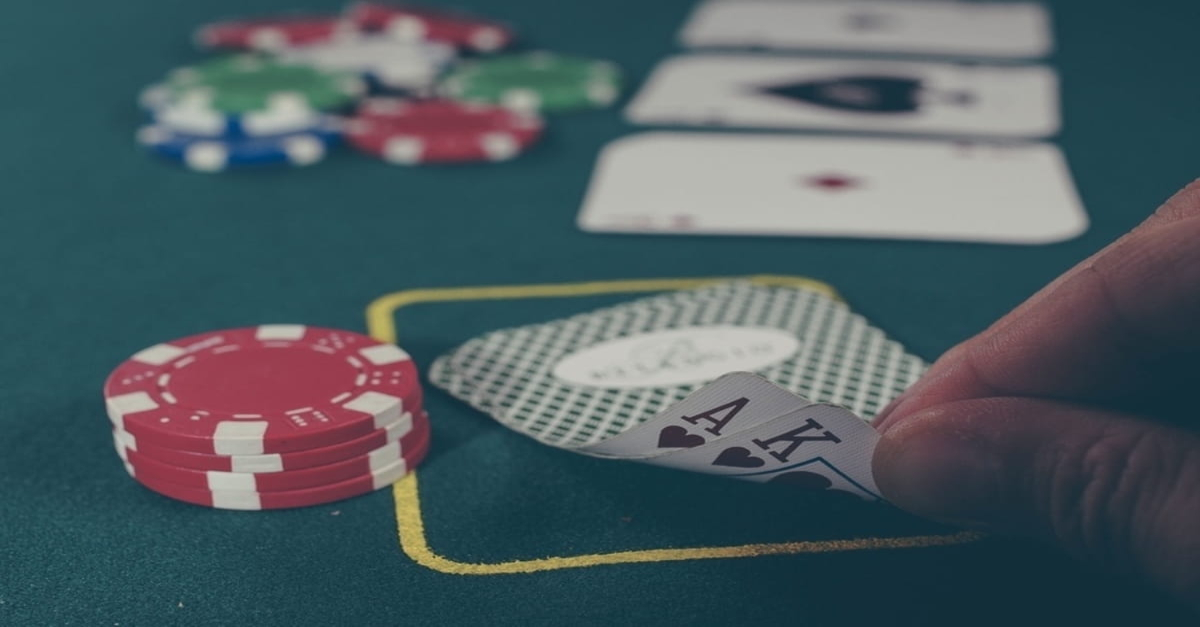2 WHAT IS A GAMBLING PROBLEM? Your partner or family member has a gambling problem if they are (tick the ones that apply): n Spending too much time gambling or too much time thinking about gambling, neglecting other important activities (e.g. Time with you and your family, work, leisure activities).
The first thing to do if you think your partner is a problem gambler is to seek help. GamCare has a helpline (0808 8020 133) that’s open seven days a week. They can provide you with advice on what your next steps could be. Authors contributing to this blog on Disordered Gambling are all recipients of the Shannon L. Bybee Award, presented by the Nevada Council on Problem Gambling in recognition of proactive commitment to problem gambling advocacy, education, and research. If you believe that you or a loved one may have a gambling problem, please call the 24-hour. If you are already in the process of litigating custody and need to prove that your ex has a gambling addiction, you have some work ahead. There are methods to obtain the evident and show it to the court to support your custody case.
Less ' aria-expanded='false'>All slots are rigged. They're set to a certain payout rate, which gives a certain percentage to the house. If gambling was a matter of pure luck, due to the laws of statistics it would never be profitable for casinos in the long run. As for the casino cheating, probably not. I assume you're referring to Maryland Live! which is a reputable institution owned by a company that has investments in casinos all over the country. It's not likely that they're cheating (beyond the inherent margin that the house gets in gambling anyway). I don't see anything illegal here, and I'm not sure what you'd be suing them for. Get your husband help, contact Gamblers Anonymous.
I focus my practice on (video) gaming industry, casino gambling, and complex internet law issues, electronic free speech, entertainment law, copyright and trademark law, and computer fraud. I primarily represent game developers and founders of emergent internet technologies. The author is a Maryland attorney; however no answer given on Avvo is intended as legal advice or intended to create an attorney-client relationship.
By Sydney Smith LPC, LADC, NCGC-II
A gambling problem can be difficult to detect
Problem Gambling can be hidden for a long time which often makes it very difficult to detect. By the time the problem surfaces and the family finds out, the devastation and wreckage can be tremendous. Family members tend to know that something is wrong with their loved one but due to gambling addiction’s invisible nature, especially in the early stages of the disease, it can be extremely hard to identify.
In this article, we will discuss the signs and symptoms of, and ways to identify if your loved one has a gambling problem. Then, we’ll invite your questions about how to get help at the end.
Determining if there is a gambling problem
As a family member, we may or may not know the extent of the gambling problem or how long gambling has been an issue for our loved one. We may know about the gambling, but still have much uncertainty as to whether there is a gambling problem. So if you are asking yourself,
“How do I know if my loved one is a problem gambler?”
…the following are questions and information that may help determine if there is a gambling problem.
SIGN 1: Time away. If I know the person is gambling, the amount of time spent gambling or engaged in gambling activities increases. The gambler can be gone for long unaccounted for periods of time.
When the gambler in my life gambled, he often gambled while he was at work. So, in the early stages I did not know how much time he actually spent gambling. As his gambling worsened, he would not come home from work and would disappear for 24 hours at a time.
SIGN 2: Obsession to find money. Is the gambler becoming preoccupied or obsessed with obtaining money to gamble or thoughts of gambling? The great obsession can be on coming up with ways to borrow money, taking out loans, pawning items for cash, or planning their next bet.
Living with a gambler in the past, I would frequently have jewelry missing or items of value just disappear. Later I would learn that my gambler would pawn these items to obtain gambling money or to chase his losses. Later in the progression of the disease, the gambler may be physically present but not there, as the mind is preoccupied with gambling.
My Spouse Has A Gambling Problem Will
SIGN 3: Emotional volatility. Does the gambler have moods swings or gambles as a means to cope or change feelings? A gambler deep into his addiction can exhibit mood swings similar to those of a person diagnosed with bi-polar disorder. The extreme up and down in moods can be hard on both the gambler and the family members. The “up” moods can follow a win, and the gambler may even brag about the winnings. The “down” mood can be very depressive and the gambler may experience anxious or depressed mood, anger, and become irritable.
Gambling is used to change the way the person is feeling and the family members may hear the gambler make statements such as, “I had a stressful day at work and I just need to go gamble to unwind”.
Operating a gambling establishment. SIGN 4: New secrets. Are there secretive behaviors or hiding? Is the gambler becoming very secretive in his actions and with his money? Hiding of gambling wins or losses, hiding lottery tickets, tax documents, etc. becomes common.
In my therapy practice, I often hear the spouses say, “I found payday loan papers, or while cleaning, I found ATM receipts from the casino.”. The family may begin to lose trust for the gambler as the hiding, concealing, and lying about gambling grows.

20 questions to ask yourself
These are a few of the more noticeable warning signs one may experience with the gambler. In addition, Gam-Anon created a simple list of 20 questions for family members to ask themselves.


Family members of problem gamblers will answer “YES” to at least seven of the twenty questions. Funny moments stories.
- Do you find yourself constantly bothered by bill collectors?
- Is the person in question often away from home for long unexplained periods of time?
- Does this person ever lose time from work due to gambling?
- Do you feel that this person cannot be trusted with money?
- Does this person promise that he or she will stop gambling, yet gambles again and again?
- Does this person ever gamble longer than he or she intended?
- Does this person immediately return to gambling to try to recover losses or to win more?
- Does this person ever gamble to get money to solve financial difficulties?
- Does this person borrow money to gamble with or to pay gambling debts?
- Has this person’s reputation ever suffered due to gambling?
- Have you come to the point of hiding money needed for living expenses?
- Do you search this person’s clothing, go through his or her wallet, or check on his or her activities?
- Do you hide his or her money?
- Have you noticed personality changes in him or her?
- Does this person consistently lie to cover up or deny his or her gambling activities?
- Does this person use guilt induction as a method of shifting responsibility for his or her gambling onto you?
- Do you attempt to anticipate this person’s moods to try to control his or her life?
- Does this person ever suffer from remorse or depression due to gambling sometimes to the point of self-destruction?
- Have you ever threatened to break up the family because of the gambling?
- Do you feel that your life together is a nightmare?
What can you do next?
When Your Spouse Has A Gambling Problem
This list can be found on the Gam-Anon website or in Gam-Anon published literature. If you can identify with any of the information listed above:
My Spouse Has A Gambling Problem Without

- Continue to educate yourself about gambling addiction through resources and literature.
- Reach out to a trained professional.
- Attend a Gam-Anon or any 12-step support meeting for friends and family of addicts.

20 questions to ask yourself
These are a few of the more noticeable warning signs one may experience with the gambler. In addition, Gam-Anon created a simple list of 20 questions for family members to ask themselves.
Family members of problem gamblers will answer “YES” to at least seven of the twenty questions. Funny moments stories.
- Do you find yourself constantly bothered by bill collectors?
- Is the person in question often away from home for long unexplained periods of time?
- Does this person ever lose time from work due to gambling?
- Do you feel that this person cannot be trusted with money?
- Does this person promise that he or she will stop gambling, yet gambles again and again?
- Does this person ever gamble longer than he or she intended?
- Does this person immediately return to gambling to try to recover losses or to win more?
- Does this person ever gamble to get money to solve financial difficulties?
- Does this person borrow money to gamble with or to pay gambling debts?
- Has this person’s reputation ever suffered due to gambling?
- Have you come to the point of hiding money needed for living expenses?
- Do you search this person’s clothing, go through his or her wallet, or check on his or her activities?
- Do you hide his or her money?
- Have you noticed personality changes in him or her?
- Does this person consistently lie to cover up or deny his or her gambling activities?
- Does this person use guilt induction as a method of shifting responsibility for his or her gambling onto you?
- Do you attempt to anticipate this person’s moods to try to control his or her life?
- Does this person ever suffer from remorse or depression due to gambling sometimes to the point of self-destruction?
- Have you ever threatened to break up the family because of the gambling?
- Do you feel that your life together is a nightmare?
What can you do next?
When Your Spouse Has A Gambling Problem
This list can be found on the Gam-Anon website or in Gam-Anon published literature. If you can identify with any of the information listed above:
My Spouse Has A Gambling Problem Without
- Continue to educate yourself about gambling addiction through resources and literature.
- Reach out to a trained professional.
- Attend a Gam-Anon or any 12-step support meeting for friends and family of addicts.
If we believe our loved one has a gambling addiction, it is OK to encourage them to seek help, however, it is vitally important for us as family members to seek out our own help. We are not alone, there is hope, and life can get better.